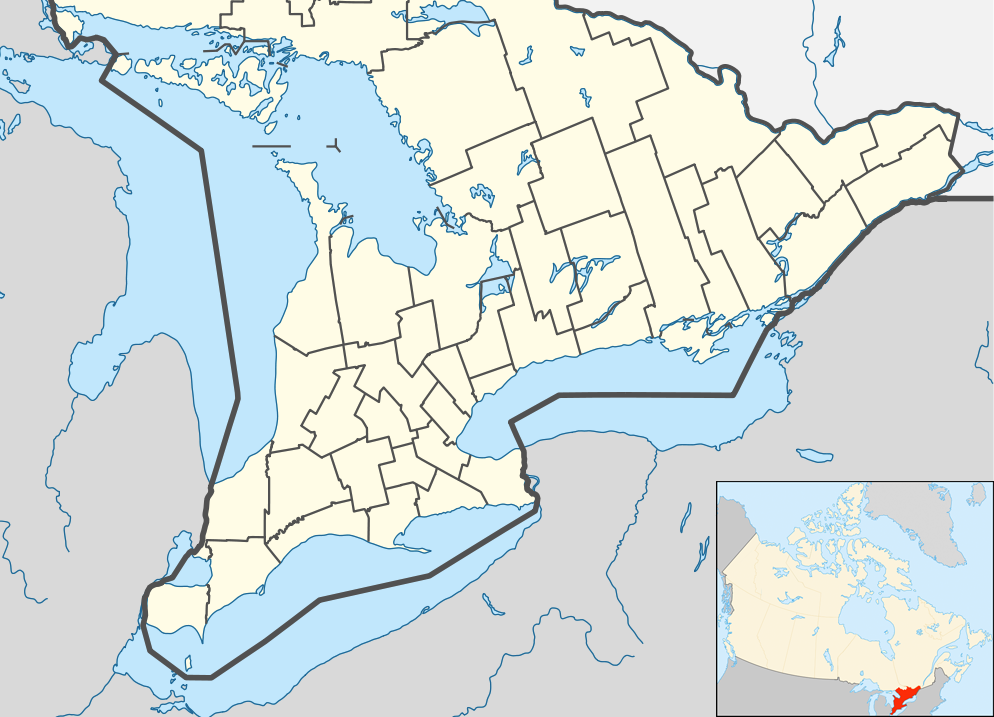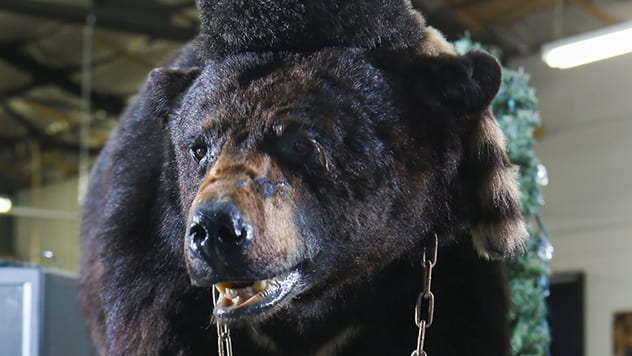Copyright 2021 by Gary L. Pullman
Source: Wikiepdia
Note: This post assumes that you have seen the movie Backcountry.
If you have not, Wikipedia offers a fairly detailed, accurate summary
of the film's plot.
As prompts for groups in my English 101 classes, after we had
watched Backcountry (2014) and the class had been divided into
groups, I would distribute these instructions:
Which personality traits (use nouns to identify them) are
predicated or dependent upon others? Which are primary and which are
secondary? In other words, can an immature person be responsible? Can
a cowardly person defend someone else if doing so puts him or her in
danger? In developing your thesis, you should consider these
questions, so that your claim is not self-contradictory.
Fill in the three blanks with the TRAITS (use nouns to identify
them) of Alex’s character that you see as related to his errors of
judgment. (Make sure these errors lead to his death and to Jen’s
endangerment.) Some of these errors may directly lead to
consequences; others may indirectly do so. In your paragraphs, you
should distinguish the former from the latter.
THESIS: Alex’s ______________, ______________,
and ______________ lead him to make many errors of judgment that
result in his death and Jen’s endangerment.
Based upon the thesis, write the body paragraph (1, 2, or 3)
assigned to your group. The first sentence should be the paragraph’s
topic sentence. Use simple present tense.
The blanks could be filled in with a variety of traits, but let's
use this thesis for the purposes of this post:
THESIS: Alex’s immaturity, self-interest, and impetuosity
lead him to make many errors of judgment that result in his death and
Jen’s endangerment.
If a trait is defined as an evolved adaptation, we must ask, how
each of Alex's adaptations, or traits, promotes his survival and the
chance that he will generate offspring through reproduction. Since
he, in fact, does not survive and, therefore, cannot reproduce, the
answer is apparent at once that his adaptations do not "work";
they do not enable him to survive. Quite the contrary, they are,
essentially, the death of him—and nearly of Jen. Simple. Lacking
the traits that do promote survival, he dies.
His girlfriend is the final girl, who survives their ordeal.
Therefore, it is her traits, or adaptations, that we should examine.
In many ways, she is a foil, or opposite, to Alex. We could fill
in the thesis's blanks with traits that are the opposite of Alex's
own and produce a good summary of some of the adaptations that enable
her to survive their ordeal:
THESIS: Jen’s maturity, altruism, and caution lead her to
make sound judgments that result in her survival.
Another way to approach our consideration is to identify the
mistakes that each character makes during their visit to a provincial
park in Canada.
Source: allocine.fr
Let's start with Alex, who makes considerably more mistakes and
more serious ones than Jen; as we list his errors, we will also
characterize them as springing from poor judgment; an immature desire
to impress Jen; inconsideration; deceitfulness; negligence;
carelessness; an immature desire to focus Jen's attention on himself;
or recklessness.
He refuses the map of the camp that the ranger offers him:
poor judgment; an immature desire to impress Jen. (Jen and Alex
become lost and have no guidance out of the woods. His behavior
could endanger their lives.)
He leaves Jen's cell phone in the trunk of their vehicle:
poor judgment; an immature desire to focus Jen's attention on
himself; deceitfulness. (Without a phone, Alex and Jen have no way
to call for help. His behavior could endanger their lives.)
He neglects tending to his toe after dropping their canoe on
it: poor judgment; an immature desire to impress Jen; recklessness.
(He could have become incapacitated or died of an infection, so his
neglect endangers himself and, possibly, Jen by making her more
vulnerable.)
He removes his clothes and leaps naked into a lake: poor
judgment; recklessness. (He could injure himself on a rock in the
lake and, without clothes to keep him warm, he could succumb to the
cold, endangering his own life and potentially leaving Jen
unprotected.)
He leaves Jen alone to cut firewood: poor judgment. (By
herself, she is vulnerable to animal attack or the assault of
another camper; thus, he endangers her life.)
He leaves his hatchet in the trunk of a tree: poor judgment.
(He leaves a potential weapon behind, both depriving himself of its
use and potentially arming a human predator; he thus endangers both
Jen's life and his own.)
He does not dismiss a stranger (Brad), whom, in Alex's
absence, Jen invites to join Alex and her for dinner at their
campsite: poor judgment. (The stranger, Brad, who happens upon Jen
could be dangerous: he might have raped or killed Jen. His behavior
could endanger their lives.)
Even after learning that Brad is in the park, Alex again
leaves Jen alone at their campsite, he leaves Jen alone again to
retrieve the hatchet he's left embedded in a tree trunk: poor
judgment. (By herself, she is vulnerable to animal attack or the
assault of another camper; thus, he endangers her life.)
He does not turn back when he sees bear prints: poor
judgment; recklessness. (His inaction could endanger their lives.)
He does not ell Jen that there is a bear in the area: poor
judgment; deceitfulness. (Jen has bear spray and a traffic flare
that they could use against the bear, but she is unaware of its
presence. The bear could kill someone. His behavior endangers their
lives.)
He does not investigate noises that Jen hears during their
first night in their tent: poor judgment. (His inaction could
endanger their lives.)
He sees a sapling's snapped-off branch, but ignores its
significance: poor judgment; recklessness; deceitfulness. (His
inaction could endanger their lives.)
Even after seeing the carcass of a dead deer indicating the
presence of a bear—and of a bear that is both starving (bears,
otherwise, don't eat meat—and predatory)—Alex refuses to leave
the park: poor judgment. (His decision could endanger their lives.)
He continues to hike, deeper into the forest, even after he
realizes he is lost: poor judgment; recklessness. (His action could
endanger their lives.)
He hastens up the trail ahead of Jen, leaving her vulnerable,
as they ascend the mountainside: carelessness, inconsideration. (His
inconsideration could endanger their lives.)
Even after the bear visits their campsite, Alex refuses to
leave the park: poor judgment; recklessness. (His refusal to leave
the park endangers their lives.)
Alex leaves his axe outside the tent: carelessness. (He
leaves a potential weapon behind, depriving himself of its use,
which endangers their lives.)
Source: showbizjunkies.com
Jen also makes several mistakes:
She does not insist that Alex accept a park map from the
ranger or accept one herself: poor judgment. (She and Alex could get
lost. Her behavior could endanger their lives.)
In Alex's absence, Jen invites Brad onto their campsite: poor
judgment. (Since she does not know Brad, Jen could be endangering
her and Alex's lives and could be putting herself in danger of being
raped.)
Jen does not insist that Alex make sure the “acorns” he
says are falling on their tent really are acorns: poor judgment.
(Her behavior could endanger their lives.)
Jen does not insist that Alex take her home after she sees
evidence of the nearby presence of a bear: poor judgment;
recklessness: poor judgment; recklessness. (Her behavior could
endanger their lives.)
Jen returns to their campsite after the bear has killed Alex
so she can retrieve the engagement ring he has shown her: poor
judgment; recklessness. (Her behavior could endanger her life.
lives.)
Source: anthonybehindthescenes.com
It seems that Jen's mistakes stem from her desire to support Alex
and to prevent damage to his ego and self-esteem, from her needs to
be friendly and to feel liked, and from her love of him.
Although she is a successful lawyer, while he plans to start a
landscaping service, she often defers to his judgment and to his
needs and desires, rather than pursuing or seeking to advance her
own.
Rather than insisting that he accept the map of the park that the
ranger offers him, Jen accepts his refusal, probably because she does
not want to embarrass Alex by casting doubts on his knowledge of the
park.
She invites Brad to join Alex and her because she is a friendly
person.
Alex professes to be an expert on hiking and camping, especially
at the park, which he implies he knows well. Jen probably refrains
from insisting that Alex check out the unfamiliar sounds she hears
while she and Alex are in their tent for the same reason that she
does not insist that he take a map from the ranger: she does not want
to embarrass Alex by casting doubts on his knowledge of the park.
It seems that, when it becomes clear they are, without doubt,
lost, Jen does not insist that Alex take her home after she sees
evidence of the nearby presence of a bear because she does she has
feelings for him and may feel sorry for him. Likewise, after Alex's
death, she returns to their campsite, despite the bear's presence, so
that she can retrieve the engagement ring he has shown her, because
she has feelings for Alex and wants a memento of his love for her.
Although Jen, like Alex, makes mistakes in judgment when she is
with Alex, she is not a woodman and the couple's survival is not
primarily her responsibility. In addition, she is not deceitful
toward Alex, as he is to her.
When she is alone, after Alex's death, her decisions are wise,
allowing her to survive the bear and the wilderness. The fact that
she makes no mistakes when she is alone suggests that her romantic
relationship with Alex clouded her judgment; without him, she makes
clear, rational, wise decisions and takes prudent, effective action,
which enables her to survive.
In adapting to his environment, Alex has developed traits which
serve his emotional needs, but he lacks adaptations that pertain to
practical, everyday matters, including traits related to analysis,
evaluation, and survival. He is overconfident. He seeks to impress
others, especially Jen. He wants to be the sole focus of Jen's
attention. He is deceitful, often hiding the truth from Jen regarding
their situation and the danger they face. He is careless at times and
reckless. He is immature. He is irresponsible.
In a different environment, such as Jen's house or the city, such
traits might not fail him, because his survival is protected by
institutions (art and culture, commercial and industrial enterprises,
economic systems, family, friends, government, hospitals, language,
legal systems, mass media, military forces, penal systems, schools,
scientific research laboratories, religion); organizations, such as
charities, emergency responders, and fraternal societies; an
infrastructure (energy, highways, railroads, rivers, warehouses).
Jen, on the other hand, although not without flaws of her own, is
cautious, mature, responsible, and resourceful. She is a thinker; she
analyzes, evaluates, and plans.
In the city, society has
individuals' backs. In the wilderness, individuals need to be able to
take care of themselves. Those who can, as Jen does, are likely to
survive; those who cannot, as Alex does not, will probably die.
By putting to opposite characters side by side in an environment
different that their typical surroundings, Backcountry tests the
effectiveness of the respective characters' evolved adaptations. The
unfamiliar surroundings, the remoteness of the park, the rugged
terrain, the stranger Brad, and, of course, the bear all pose threats
or potential threats; each tests the evolved adaptations, or the
traits, and the behaviors of the couple. One perishes; the other
survives. The reason for one's failure and the other's success is
that Jen had evolved adaptations that are effective for survival in
the wilderness, whereas Alex has not. Without the support of society,
civilization, and culture, Alex cannot survive and dies; Jen can and
lives. The park is an environment, an arena, a laboratory, that puts
traits to the test. Jen passes, but Alex receives the Darwin Award.
Source: alenatedinvancouver.blogspot,com
Next post: Evolution, Psychology, and Horror, Part II






















